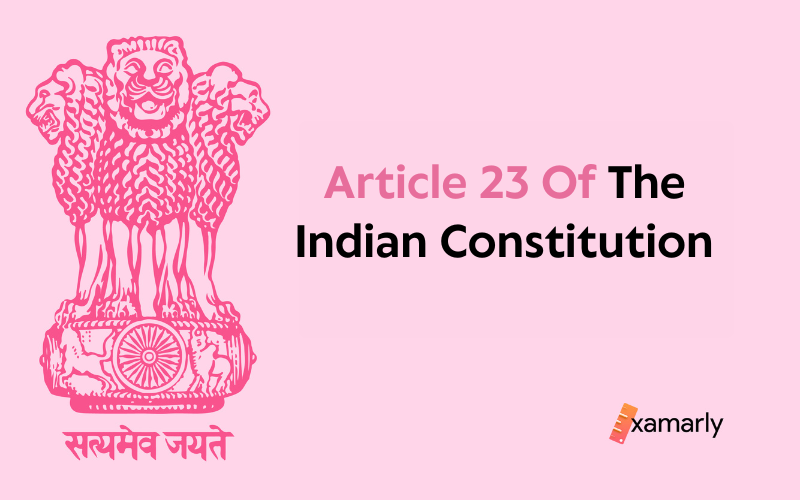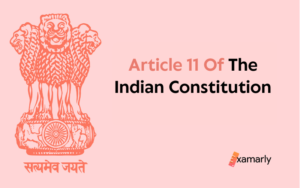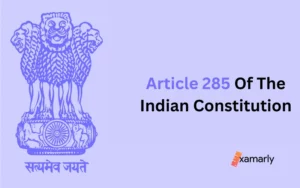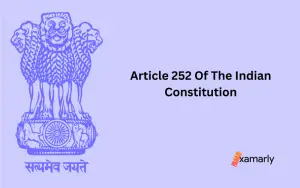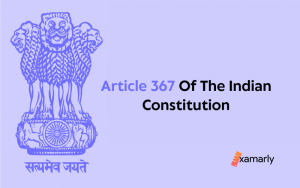Right against exploitation is a crucial part of the Indian Constitution. It is a fundamental right that protects citizens from forced labor, trafficking, and other acts that harm the freedom and dignity of a person. Articles 23 and 24 specifically deal with rights against exploitation. Here, we will look at Article 23 of the Indian Constitution. The issue of bonded labor and human trafficking are mentioned in this article. Let us read more about it.
- What Is Article 23 Of The Indian Constitution?
- Constitutional Provision
- Meaning Of Exploitation And Its Kinds
- Reasons for Trafficking and Forced Labour
- Constituent Assembly Debates
- Important Supreme Court Judgements
- Bandhua Mukti Morcha vs Union of India
- Dulal Samanta vs D.M. Howrah
- Deena v. Union of India, AIR 1983,
- Sanjit Roy v. the State of Rajasthan (AIR 1983)
- Legislations To Enforce This Article
- Immoral Traffic (Prevention) Act, 1956
- Bonded Labour System (Abolition) Act, 1976
- The Indian Penal Code
- The Payment Of Wages Act 1936
- International Charters and Article 23
- Conclusion
- FAQs
What Is Article 23 Of The Indian Constitution?
Human trafficking, beggar, and other forms of forced labor are all prohibited and punishable under Article 23. However, the Constitution also states that this article does not preclude the state from imposing mandatory services for public purposes without regard to specific grounds.
Constitutional Provision
Article 23 of the Indian Constitution deals with the prohibition of human trafficking and forced labor. It has 2 clauses.
- Article 23(1) – Human trafficking, beggaring, and other similar forms of forced labor are prohibited, and any violation of this provision is a crime punishable by law.
- Article 23(2) – This article contains nothing that forbids the government from authorizing compulsory service for public purposes. While imposing such service, the State shall not discriminate on the basis of religion, race, caste, class, or any other.
Meaning Of Exploitation And Its Kinds
Let us look at what kinds of exploitation are mentioned in Article 23 and what these terms mean.
- Exploitation: The use of another’s services by force and/or labor without payment is prohibited by Article 23.
- Beggar: Work performed without payment is referred to as beggar.
- Forced Labor: It is considered forced labor if the pay is less than the minimum wage. Furthermore, one cannot be forced to work against his or her will, even if remuneration is provided, as this is unconstitutional.
- Bonded Labor: It occurs when someone is coerced into performing services in exchange for an unpayable loan or debt. Article 23 declares bonded labor unconstitutional. This includes slavery, despite the fact that it is not explicitly mentioned in the constitution.
- Coercion: It is forcing landless people to work. This is unconstitutional, as is forcing helpless women into prostitution.
- Trafficking: It refers to the buying and selling of people, usually for the purposes of forced labor, forced prostitution, or sexual slavery.
Reasons for Trafficking and Forced Labour
During the past five years, the number of enslaved people has risen by 10 million. This growth has stymied the progress of the fight against modern slavery. There are a number of factors that contribute to this problem. A few are stated below:
- Poverty -Poverty has the potential to turn people into traffickers and even force parents to sell their children or other family members.
- Scarcity of Resources: Human trafficking is common in areas where resources are unevenly distributed. The need for a better livelihood drives them to illegal means of earning.
- Social Factors– Disadvantaged sections of society, such as women, children, the illiterate, and the marginalized, suffer as a result of their inability to speak out against injustice.
- Insufficient Legislative and Legal Framework– The growing number of cases is a result of the government’s failure to increase public awareness and enforce current laws locally.
- Inadequate Economic Prospects – The youth are also pushed into unethical ways of earning money due to the current state of mass unemployment. Economic circumstances drive many into forced labor, prostitution, human organs black markets, and other illegal activities.
Constituent Assembly Debates
- Prof. KT Shah argued that ‘devadasi’ should be added to the specific mention of ‘begar,’ but other members felt that the practice is declining and that ordinary legislation is sufficient to prohibit it.
- Sardar Bhopinder Singh believed that the State should compensate adequately in cases of compulsory service, but this was rejected.
Important Supreme Court Judgements
Bandhua Mukti Morcha vs Union of India
Bandhua Mukti Morcha was an organization dedicated to the abolition of bonded labor. They sent a letter to Justice Bhagwati, who handled it as a Public Interest Litigation and considered the organization’s observations based on an inspection of a number of stone quarries engaging Bonded Labor. The Court developed guidelines for identifying bonded laborers and concluded that identifying, releasing, and rehabilitating bonded laborers is the responsibility of the state government.
Dulal Samanta vs D.M. Howrah
In this case, the petitioner received a notice appointing him as a special police officer for three months, but he claimed that this violated his fundamental right because it resulted in “forced labor”. The Court dismissed his appeal, ruling that conscription for police services is not beggar, traffic, or forced labor.
Deena v. Union of India, AIR 1983,
According to this case, taking prisoners’ labor without paying them a fair wage for their work violates the provisions of Article 23. They are entitled to reasonable wages commensurate with their work.
Sanjit Roy v. the State of Rajasthan (AIR 1983)
In this case, it was determined that it is unlawful to pay someone engaged in famine relief work a wage that is less than the minimum wage.
According to the court, the 1964 Rajasthan Famine Relief Works Employees (Exemption from Labour Laws) Act is unconstitutional since it pertains to the minimum wage act’s exclusion.
This means that regardless of whether a person is impacted by drought or scarcity, all state employees engaged in famine or flood relief operations must be paid at least the minimum wage.
This is crucial to make sure that the state does not reap the benefits of the helpless condition of those affected by drought, famine, etc., and it supports the requirement that they must be compensated properly for the work that they perform and the sweat they shed that benefits the state.
Also Read: Check out the linked article from the table given below for UPSC Preparation.
Legislations To Enforce This Article
Immoral Traffic (Prevention) Act, 1956
This law makes trafficking for commercial sexual exploitation a crime. The rules were created to criminalize various types of sex work in order to reduce, and eventually eliminate, prostitution in India. Anyone involved in any stage of the chain of events, such as recruiting, transporting, transferring, harboring, or receiving people for prostitution, faces prosecution.
Bonded Labour System (Abolition) Act, 1976
The District Magistrate was given the implementing authority to look into the prevention and rehabilitation of Bonded labor. It imposed harsher punishments of up to three years in prison for those who performed bonded labor. It creates an institutional structure at the district level in the form of Vigilance Committees. Vigilance committees advise District Magistrates (DMs) on how to apply the requirements of this legislation correctly. The State Governments/UTs may delegate to an Executive Magistrate the powers of a Judicial Magistrate of the first or second class for the trial of offenses under this Act.
The Indian Penal Code
Sections 366(A) and 372 of the IPC, respectively, prohibit kidnapping and selling minors into prostitution.
The Payment Of Wages Act 1936
This Act ensures that the authorities pay the workers’ wages or salaries on time. Furthermore, no undue deductions from the salary are permitted.
International Charters and Article 23
Universal Declaration of Human Rights
It states in Article 4 that “no one shall be held in slavery or servitude; slavery and the slave trade shall be prohibited in all their forms.” One of the most important fundamental rights guaranteed by the UDHR is freedom from slavery.
International Covenant on Civil and Political Rights
It states that (i)All forms of slavery are forbidden, (ii) No one shall be subjected to servitude, and (iii) No one shall be subjected to forced or compulsory labor.
Conclusion
Article 23 deals with exploitation rights especially keeping in mind economic equality and equality before law. It is a must-know article for all UPSC aspirants.
FAQs
What Is exploitation?
Exploitation in article 23 of the Indian constitution means the use of another’s service in a manner that results in a remuneration less than the minimum wage. It also includes such acts as trafficking and bonded labor.
What Does Begar Mean?
A beggar is a person who does not receive remuneration for his work. In India, this term is also used for those who do manual labor or agricultural work without being paid.
What Is Meant By Bonded Labor?
Basically, bonded labor is a form of forced labor. In this situation, the workers are forced to work under substandard conditions by the employer. The workers are also subjected to inhuman treatment and torture. In bonded labor, the wages are very low.
What Is forced labor?
It is considered forced labor if the pay is less than the minimum wage. Furthermore, one cannot be forced to work against his or her will, even if remuneration is provided, as this is unconstitutional. This also includes bonded labor. Bonded labor refers to being compelled to work for little pay, prison labor, in which inmates who have been committed to rigorous imprisonment are compelled to work for even the barest minimum wage, etc.
Which Article Addresses The Right Against Exploitation?
Both articles 23 and 24 deal with the right against exploitation. The former deals with the prohibition of forced labor and human traffic whereas the latter deals with the prohibition of employment of children from the hazardous industry.
Which Article Addresses The Prohibition of traffic in human and faucet labor?
Article 23 addresses it.
What Is The Difference Between Article 23 And Article 24?
Both articles are aiming to get rid of the evils of society existing in a country and hence bring out some clauses and provisions to safeguard them. Article 24 speaks about the employment of children in hazardous occupations. It says that children under the age of 14 should not be engaged in dangerous mines, the construction industry, or any other hazardous employment. By assuring that no one is coerced to do anything against their will, Article 23 has a very broad purview. Article 23 pertains to the prohibition of human trafficking and forced labor.


